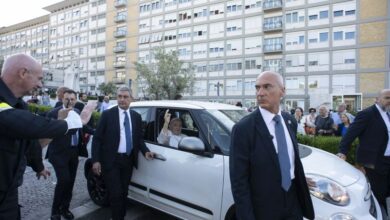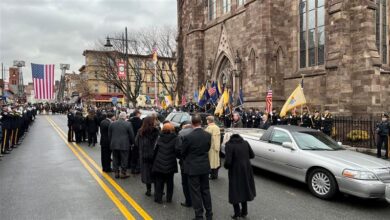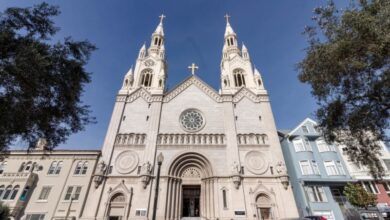Dutch bishops offer cautious response to Vatican blessing guidance, bucking regional trend
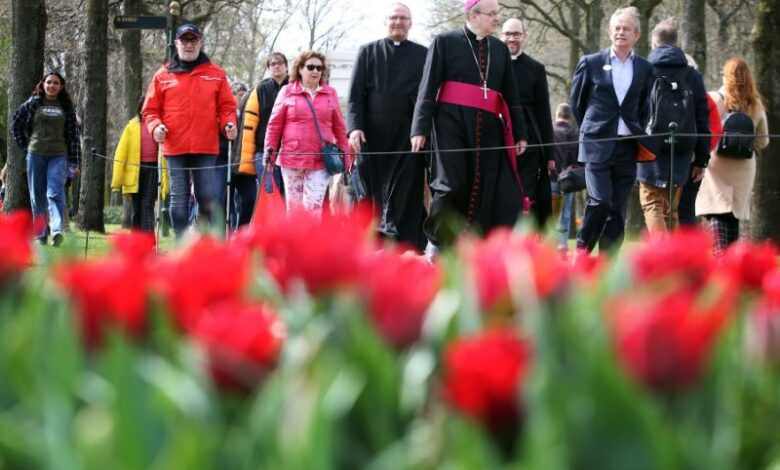
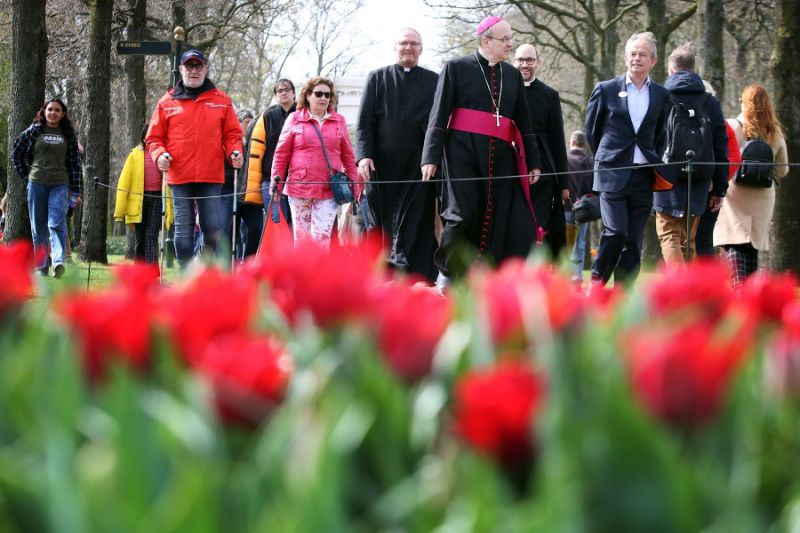 Bishop Hans van den Hende walks in Keukenhof park in Lisse, Netherlands, on April 12, 2022. / Credit: Ramon Mangold/Diocese of Rotterdam
Bishop Hans van den Hende walks in Keukenhof park in Lisse, Netherlands, on April 12, 2022. / Credit: Ramon Mangold/Diocese of Rotterdam Rome Newsroom, Jan 19, 2024 / 16:30 pm (CNA).
The Catholic bishops of the Netherlands have issued a cautious, qualified response to the Vatican’s controversial guidance on blessings, striking a markedly different tone than their most immediate neighbors in Western Europe.
In their Jan. 16 statement, the Dutch bishops wrote that while “it is possible to say a prayer over individual believers living in an irregular relationship,” care must be taken to avoid appearing to condone sinful sexual activity or to cause confusion about the nature of marriage.
“What one asks for in prayer and the manner in which one prays are important here,” stressed the country’s 11 Catholic bishops in their response to Fiducia Supplicans, the Vatican’s Dec. 18, 2023, declaration that affirmed the possibility of offering nonliturgical, spontaneous blessings to same-sex couples and those in irregular situations.
The most senior of the Dutch bishops is Cardinal Wim Eijk, the archbishop of Utrecht.
Persons, not couples
Notably, nowhere in the Dutch bishops’ 300-word statement do they refer to “same-sex couples” as the object of a blessing, as is done throughout Fiducia Supplicans.
Referring to “couples” as the object of the blessings in question has caused controversy, with some saying that it implies that the sexual activity that makes two people a couple is also being condoned.
Instead, the Dutch bishops speak of “persons living in a homosexual relationship” and emphasize that the blessings connected with Fiducia Supplicans should be offered to individual persons, “so that he/she may understand God’s will with his/her life and continue to grow.”
“This makes it clear in the wording chosen that this is not a blessing or a confirmation of an irregular relationship and also avoids confusion with marriage, which, according to the Catholic Church, can only be between a man and a woman,” wrote the Dutch bishops, who minister to about 4 million Catholics in the Netherlands, or roughly 22% of the small European country’s population.
The bishops also emphasized that blessings in connection with Fiducia Supplicans may take the form of “a simple prayer” said by an ordained minister “outside the context of a wedding celebration or prayer service.”
“In this way, prayer can give the strength to draw near to God and live in accordance with his intentions for the creation of man and woman and marriage,” they said.
Regional outlier
The Dutch bishops’ cautious and qualified reception of Fiducia Supplicans has been shared by several episcopal conferences and individual bishops throughout the world but is strikingly different from how Catholic leaders in neighboring Germany and Belgium have received the guidance.
German Church leaders have largely welcomed the Vatican directive as an affirmation of the controversial path they’ve already taken to offer formalized blessings of same-sex couples and changes to the Church’s teaching on sexuality — even though Fiducia Supplicans claims to prohibit those possibilities.
For instance, Bishop Franz-Josef Overbeck of Essen, an important figure in the German Bishops’ Conference, said on Jan. 17 that his diocese would offer “blessing celebrations” to same-sex and divorced and remarried couples who request them.
And on Dec. 20, Birgit Mock, vice president of the Central Committee of German Catholics, said that the Catholic Church in Germany would proceed with plans to draft and disperse a formalized text of blessings, a resolution that had been approved in March 2023 by the controversial German Synodal Way.
Meanwhile, in Belgium, the website of the Catholic Church in the Flemish-speaking part of the country published a Dec. 20 editorial describing Fiducia Supplicans as a “landslide” and a “huge step toward the recognition of faithful and lasting homosexual relationships.” The Flemish-speaking bishops had already published a text for same-sex blessings in September 2022.
The bishops of the Netherlands have clearly received Fiducia Supplicans differently than their neighbors to the east and south but see their response as part of their commitment to providing pastoral accompaniment “for persons living in a homosexual relationship and for divorced persons remarried.”
“The Dutch bishops do not wish to deny anyone the support and strength of God,” they said in their statement.


